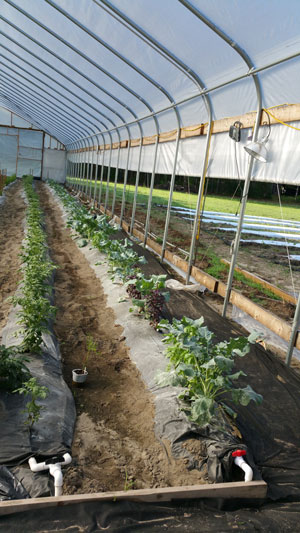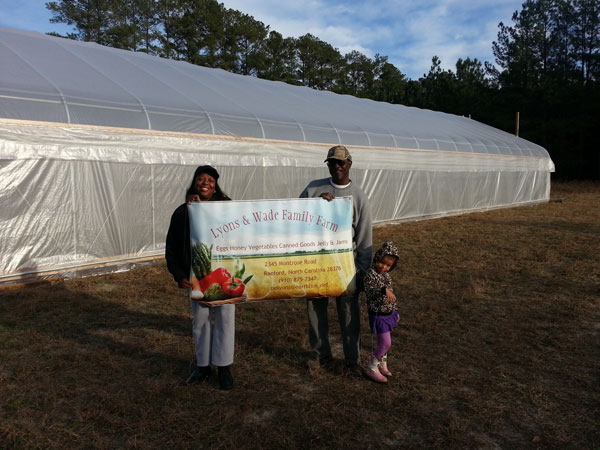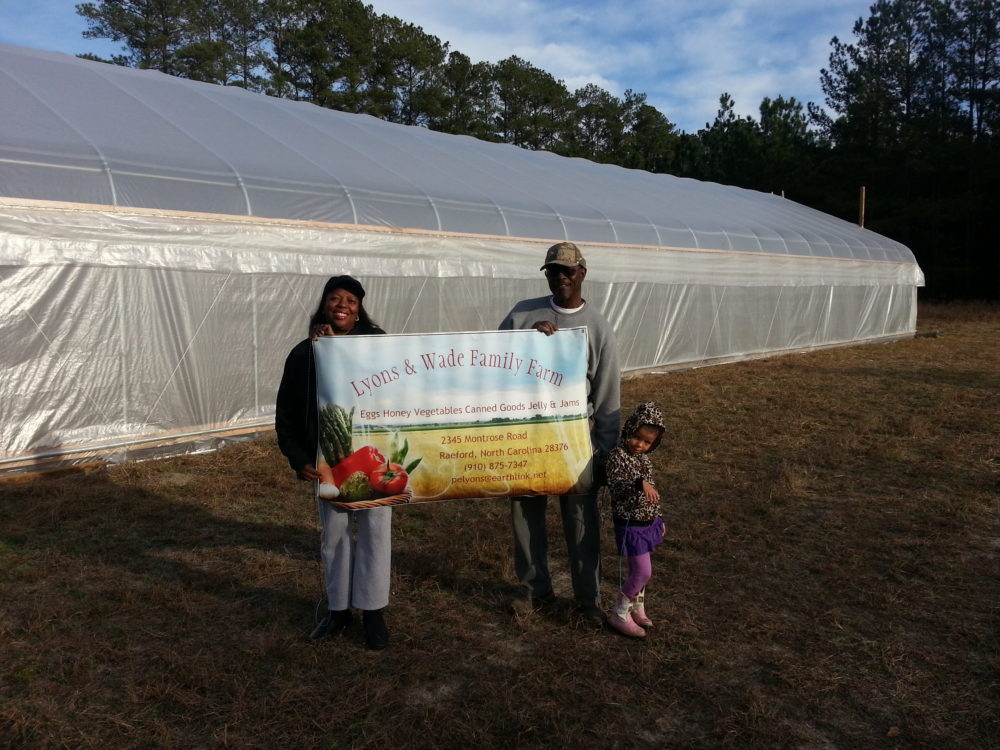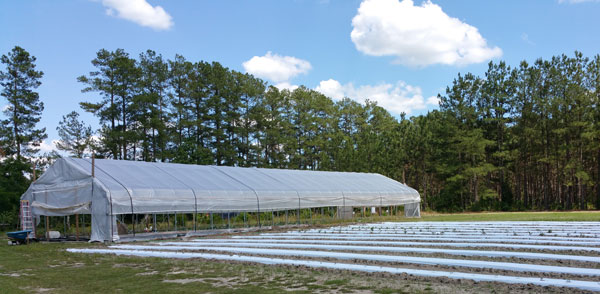by Stephanie Campbell, CFSA’s Outreach Coordinator | Nov. 17, 2016 –
“Be careful what you say your core values are, what you believe in, because you will be tested,” said Pat Lyons of Lyons and Wade Farm in Raeford, NC.
She was speaking of upending her comfortable life in Texas to move back to the family farm to honor her mother’s promise to her grandmother. She has learned this lesson, however, many times over in second-career farming with her husband, Marshall.
Pat’s family had been Hoke County, NC, for generations. Pat remembers visiting the small farm her grandmother share-cropped and, as a child, she thought it was like “camp” to live in a cabin with no running water and an outhouse. She loved the chickens and baking bread and roasting sweet potatoes in the potbellied stove. Although Pat’s parents didn’t farm, her mother promised Pat’s grandmother that she would one day move back to the farm.
After college, Pat met Marshall in Austin, Texas, and they built their careers and life there. When Pat’s mom’s health began to fail, Pat moved her to Texas and bought land to build a home where her mother could live with them. But mom said, “I want to go home to North Carolina and keep my promise to my mother.” So, they put their belongings into storage and came back to Hoke County.
As newcomers to rural North Carolina and caring for a mother with dementia, Pat looked for community resources. She signed up for Master Gardener classes and brought her mother along. Together, they began to do community volunteering at the Farmers’ Market and at school gardens.
She signed up for Farm School through the Extension Service and her eyes were opened up to a whole new world. She began to learn about sustainable farming, GAP certification, organic certification, and more.
Then it dawned on Pat that she had enough land to start a farm. She signed up for Farm School through the Extension Service and her eyes were opened up to a whole new world. She began to learn about sustainable farming, GAP certification (Good Agricultural Practices), organic certification, and more. She brought her mother along with her wherever she went even though her mother had lost the inclination to talk at all.
One day, though, they were in the feed store and saw baby chicks. Pat’s mother started talking about the chicks! Pat bought every chick they had (13) and brooded them in the kitchen. She moved them to a refurbished chicken coop, started selling eggs at the Farmers’ Market, and bought more chicks. She now has 200 chickens and 40 turkeys.
Pat’s background in public school administration had taught her how to do research and continually learn, how to access resources and collaborate with others, and how to plan and accomplish action steps toward her goals. All skills she has now applied to farming. She applied for and received funding through NRCS (Natural Resource Conservation Service) for a pollinator habitat project and an irrigation study and then matching funding for a well. Pat took an acidification class and learned to make pickles. Marshall learned to be a beekeeper, to raise rabbits, and to handle all the carpentry and irrigation needs of their farm.
Pat was thrilled to receive funding from the Environmental Quality Incentives Program (EQIP) to build a high tunnel on the farm to improve production and extend the seasons. Growing in a high tunnel is not so easy she learned. After dealing with the problems of building the tunnel, including what to do about an 18 degree incline on the site and how to prepare the soil, Pat and Marshall planted seven beds of tomatoes. The whole crop failed.
Pat called CFSA and was connected to free consulting services to solve their production challenges in high tunnels. CFSA staff spent time discussing Pat’s challenges, directing her to effective resources, developing a new production plan, and even spent a day on the farm teaching Pat and Marshall how to use the high tunnel, staking tomatoes and demonstrating growing tips.
 This year Pat and Marshall achieved successful production in the high tunnel, growing peppers, tomatoes, cucumbers and squash. They have been profitable this spring, summer, and early fall.
This year Pat and Marshall achieved successful production in the high tunnel, growing peppers, tomatoes, cucumbers and squash. They have been profitable this spring, summer, and early fall.
Hurricane Matthew arrived in October and tested their values yet again. Lyons and Wade Farm experienced flooding and high winds with downed trees, power loss and damages to the high tunnel. Farmers are nothing if not persistent, however. Pat and Marshall are assessing damages, accessing resources, and beginning the work of rebuilding and replanting.
Pat’s mother passed away last year, but she and Pat’s grandmother would be so pleased and proud to know that the family is continuing a legacy of farming in Hoke County.
CFSA is currently working with Pat and Marshall on their Organic Transition plan and we look forward to adding another USDA Certified Organic farm in the Carolinas soon.





